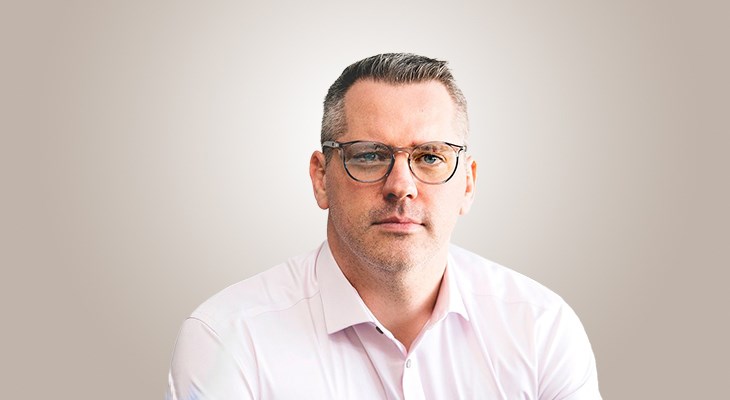Luke Haverhals, founder and CEO of Natural Fiber Welding, says he's an accidental entrepreneur. As the former chemistry professor at the United States Naval Academy tells it, he was fortunate to be in the right place and the right time in history when some two or so trillion dollars of plastic produced on the planet on more than $100 trillion in global infrastructure.
"And everybody would agree that no one likes where plastics come from, no one likes where they go to," Haverhals says. "It's a broken system. We need to move away from it and yet that $100 trillion dollars of infrastructure was built on the gross margin dollars of the fuel industry and the fuel industry will not build us another material system. So how do you solve a problem like that?"
From his experience growing up on a farm in Iowa, he knew of a technology that sequesters carbon from the atmosphere using sunlight. It can make materials for clothing, furniture, car interiors and more: plants. And it does so, he says, in a way that creates gross margin dollars to "break the backbone of the petrochemical industry."
"I knew that as a chemistry professor, but then you have to turn that into a real, viable business," he says.
Over the past seven years, he and a business partner have built a company that has the products in market and is deploying the technologies around the world to displace the petrochemical industry. His company has since been able to build unique partnerships with companies such as Ralph Lauren and BMW, among others.
With serious issues affecting people across the globe that can be attributed to the chemicals used in many everyday products, Haverhals says there's a need to come up with solutions to such big problems.
"The only way you do it is with scale," he says. "Scale is impact, impact is scale. You cannot be at scale and not have an impact. Impact can be positive, it can be negative. It could be more positive or less negative. But you will have impact at scale."
So, the way he approached it was to turn to the most scalable productive system on the planet, which regenerative agriculture.
"Regenerative agriculture is the only industry in the world that can credibly talk about sinking gigatons of carbon," he says. "Nothing else can, technically speaking."
He says he saw an opportunity to take a technical approach using very simple but highly scalable mixing technologies — food process technologies, synergies and mechanical muscles that exist in the tire industry and the flooring industry. And instead of putting petrochemicals into that system that are toxic and have a high carbon footprint, the right combinations of plant ingredients can make not just natural things but things that can be circular.
"The actual only way to solve many of these problems is to do better business with people that are attentive to the right technical details, and then let gross margins do what they do through decades," he says. "It changes the world."
The company has products in market, so the product market fit, the unit economics underneath the production system he says has all been taken care of.
"For better for worse, we didn't take huge amounts of capital at high valuations at the inception of the company, so we've been just making steady progress," Haverhals says. "But we're at the point now where on one hand the world says we need to decarbonize, we need to detoxify, we need materials. On the other hand, the safe places to park your money in a downturn is the industry that already exists, the petrochemical one."
He says the company will continue to push products into market, and is open for business to talk about raising capital.
"I think there's a lot of premium on people who they want their money to also have to beat inflation and a lot of other things going on," he says. "So, I don't think investing in good ideas is a bad habit that's going away."
He says his company doesn't have any technical or market risk. Instead he says what they have is execution risk.
"And execution risk is handled by hiring really smart, experienced people and not being too proud to learn new things and make sure you execute, execute, execute," he says. "So. you'll see us deploying technologies around the world, more products in market and probably a handful of additional announcements about really big brands who have this problem in the world of they have an ESG set of goals of 2030, 2040, 2050, they need to fill but they'll never get those goals fulfilled by the current model of where the materials come from. So, they'll need to come to us."




